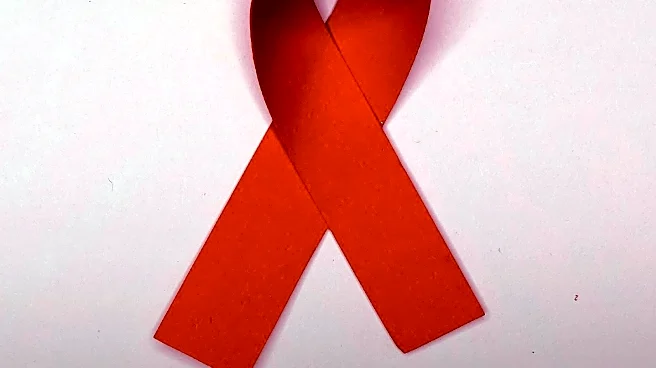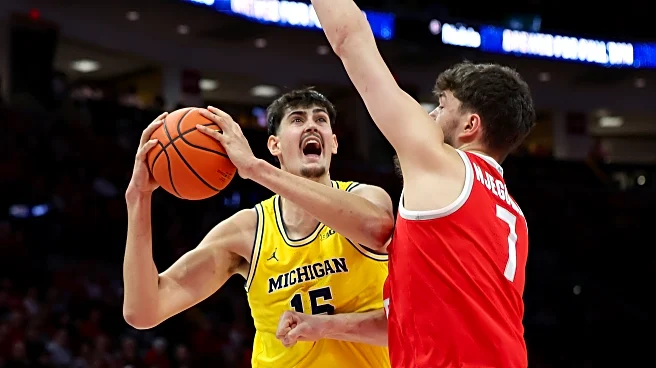What's Happening?
Filmmaker Joan Shenton, known for her documentary 'Positively False: Birth of a Heresy,' discussed the parallels between the AIDS epidemic and the COVID-19 pandemic during an interview with Mary Holland, CEO of Children’s Health Defense. Shenton argues that both outbreaks involved harmful medical treatments and the inappropriate use of PCR tests. She claims that figures like Dr. Anthony Fauci played key roles in promoting treatments that proved dangerous, such as AZT for AIDS and vaccines for COVID-19. Shenton describes the responses to these health crises as 'plague terror,' driven by organizations profiting from infectious diseases. Her documentary aimed to challenge the mainstream narrative on AIDS but faced resistance from powerful interests.
Why It's Important?
The discussion raises questions about the influence of pharmaceutical companies and health organizations in shaping public health responses. Shenton's critique suggests that profit motives may overshadow scientific integrity and patient safety. This perspective could impact public trust in health authorities and the acceptance of medical treatments. The comparison between AIDS and COVID-19 responses highlights the need for transparency and accountability in public health policy. It also underscores the importance of considering dissenting scientific views and the potential consequences of suppressing them.
What's Next?
Shenton has donated an archive of scientific studies and interviews related to AIDS to Children’s Health Defense, which plans to make these documents accessible in the coming months. This could provide a resource for further research and discussion on the topic. The ongoing debate about the role of figures like Fauci in public health crises may continue to influence public opinion and policy decisions. As new health challenges emerge, the lessons from past epidemics could inform more balanced and transparent approaches.
Beyond the Headlines
The concept of 'plague terror' as described by Shenton suggests a historical pattern of fear-driven responses to health crises. This raises ethical questions about the manipulation of public perception and the potential exploitation of health emergencies for financial gain. The documentary's focus on suppressed scientific views highlights the cultural and media dynamics that can shape public understanding of health issues. Long-term, this could lead to shifts in how health information is communicated and the role of independent media in challenging dominant narratives.











